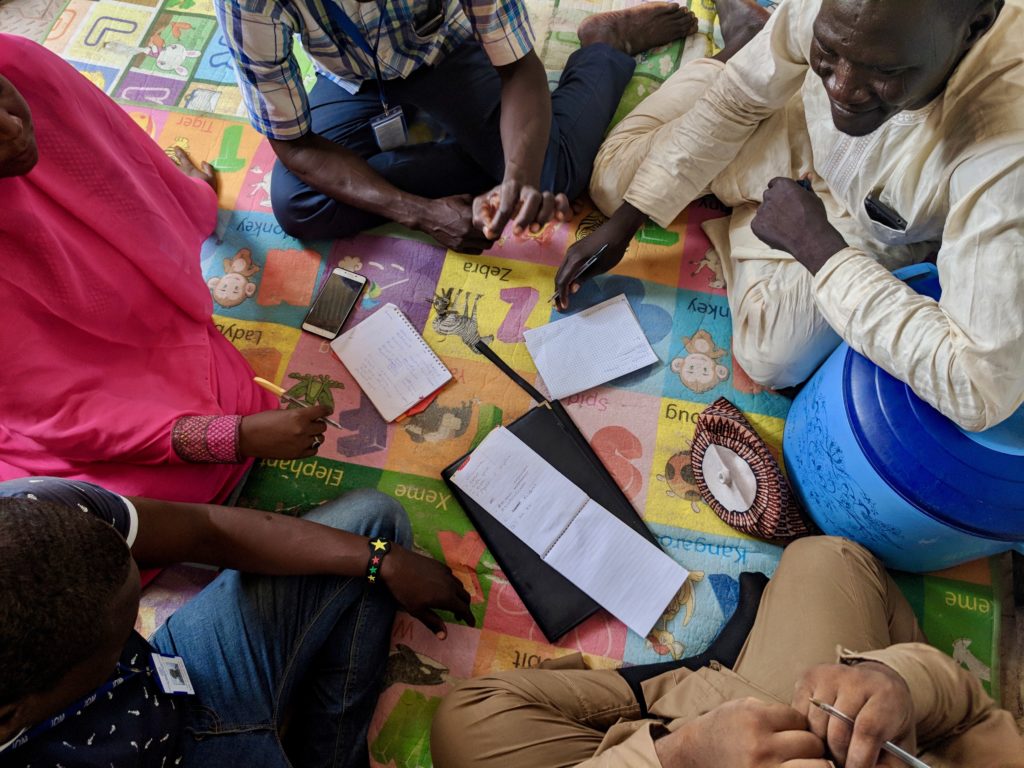Mental health is increasingly getting popular in Nigeria but the stigmatization associated with individuals with the various mental conditions remains deeply engrained in the cultural and societal perceptions of the mental health as evident in the direct translation of mental health which in the Hausa language is “services for mad people”according to Translators without Borders.
Speaking to healthnews.ng, Krissy Welle, Senior Communications Officer at Translators without Borders, said the words used to discuss mental health and psychosocial support are often stigmatized in Hausa and Kanuri, the main languages used by humanitarian responders in northeast Nigeria.
“For example, the direct translation for “mental health” in Hausa is “services for mad people,” Welle said.
By gathering input from the community in northeast Nigeria, the translators at Translators without Borders were able to agree on translations that were less culturally stigmatizing but still conveyed the intended meaning.
The organization now has a mental health and and psychosocial support version of the Translators without Borders (TWB) Glossary for Nigeria that was designed to address concerns specific to the humanitarian response in northeast Nigeria, ensuring translations are available for internally displaced people in a language and format they understand.
Welle said: “The mental health and psychosocial support version of the TWB Glossary for Nigeria supports three languages used in the humanitarian response in northeast Nigeria: Hausa, Kanuri, and English. The glossary will soon be expanded to include terminology support for Marghi, Shuwa Arabic, and Fulfulde.
“The glossary also includes audio recordings for the translations. This is important since there are dozens of languages spoken in the area affected by the conflict, and literacy levels are low. The audio recordings help non-literate and non-native speakers of Hausa and Kanuri understand key terms used by responders.”
While it is critically important to ensure translation quality, especially when translating health-related information, it could be extremely difficult to ensure perfect translation since several Nigerian glossaries did not develop and expand at the same pace as English, French, German or Chinese.
This is a major issue for TWB which has to rely on vetted translators to translate information, and then use reviewers to vet the accuracy of the translations.
“Where there is a risk of a term being misunderstood or carrying stigma, we try to check those translations with the community. That’s what we did with key mental health terms in the Nigeria glossary. First, we identified 10 key terms to review in focus groups with people displaced by the conflict. At these focus groups, conducted in Teacher’s Village camp in Maiduguri, translations were discussed and agreed upon to ensure the translation conveyed the intended meaning. Oftentimes this involved using a phrase to convey the equivalent information.”
Welle added that the existence of the mental health and psychosocial support version of the glossary can serve as a tool to ensure accurate and consistent terminology is used when discussing mental health issues, or translating materials for psychosocial service delivery.
Nigeria’s lack of language data
When TWB began operations in 2017, the organization quickly noted a lack of language data can lead to a critical gap in the communication of information.
An initial assessment that was conducted in July 2017 revealed that many humanitarian organizations working in the response to the humanitarian crisis in northern Nigeria lacked knowledge about the languages spoken and preferred by crisis-affected people, leaving them ill-equipped to plan communication activities or properly resource language support.
One humanitarian program manager told us at the time: “In a focus group discussion, we may hear that somebody only speaks Marghi, but then we have no way to respond to them.”
Another revelation by the assessment was that perceived understanding is not truly comprehension.
In June 2018 for instance, TWB tested comprehension among pregnant and/or breastfeeding women in Farm Centre Camp located in Maiduguri, Borno state. Only 31 percent of the women could correctly answer a written question about a key message on issues ranging from breastfeeding to avoiding mines and other explosives.
“This finding led us to recommend more visual and audio communication, particularly for women, many of whom got little or no formal education and struggle with written communication. Testing comprehension is a critical part of ensuring humanitarians are communicating effectively with crisis-affected people,” Welle told healthnews.ng.
Several other words were also lost in translation or were not encompassing enough.
“Through testing and focus groups we learned that the standard direct translation for “abuse” was understood to refer only to verbal abuse.
Welle revealed that in Nigeria, TWB is working with the International Organization for Migration (IOM), the UN migration agency, to gather and map language data. This information, she said, helps the entire humanitarian response plan their services by seeing which languages are most spoken in the areas where they work.
“This was unavailable until six months ago. We hope that many of the humanitarian organizations responding in the area use our language data and plan their communications activities accordingly,” she said.
